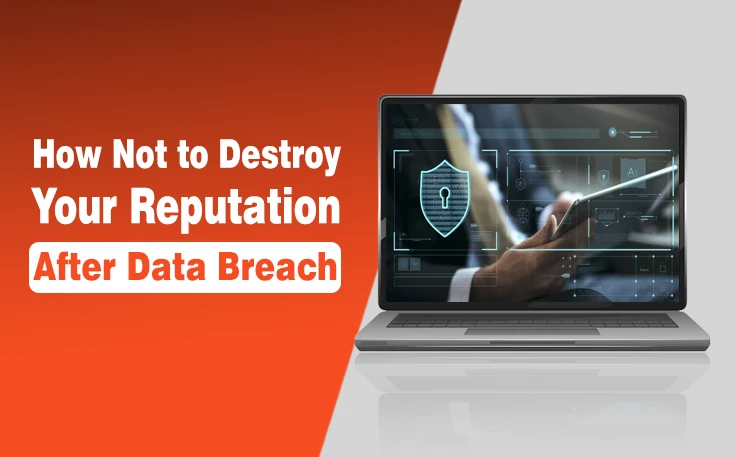Cyberattacks are a big problem for businesses in today’s online world.
Research shows that 6.06 billion malware attacks were reported globally in 2023. These attacks risk business operations, leading to data breaches and damaging reputations. However, a data breach doesn’t have to mean the end of your hard-earned business image.
This article shows how to reduce potential damage and maintain your brand’s integrity after a data breach. With the correct response, even serious data breaches can be managed effectively. You’ll find strategies to protect your reputation and keep the trust of your customers and stakeholders.
Read on to learn how to survive a data breach and emerge stronger on the other side.
4 Simple Ways to Protect Your Reputation After a Data Breach
If you’ve fallen victim to a data breach, it’s important to act quickly. Here are four easy ways to protect your reputation and reduce the impact of a cyberattack.
1. Evaluate the Damage
After a cyberattack, it’s essential to assess the damage quickly. Work with your managed security service provider (MSSP), an internal team, or a cybersecurity response firm to conduct digital forensics and understand the breach’s nature and scope. Was the threat internal or external? Which systems and data were affected?
Once you have these answers, coordinate with legal and compliance teams to meet regulatory requirements. This evaluation will also help you decide whether you must inform customers or law enforcement.
Knowing the root cause of the breach is crucial for adequate recovery. Tools like vulnerability assessments, control gap analysis, and penetration testing can help fix system weaknesses and strengthen cybersecurity.
Evaluating the damage goes beyond technical issues. Consider media coverage, stock market reactions, and the impact on customers. Analyzing these factors helps you understand the effect on your brand’s reputation.
2. Invest in Rebuilding Your Brand
To rebuild your reputation after a data breach, focus on clear improvements that show your dedication to security.
Put strong measures like encryption, firewalls, secure networks, and VPN solutions in place to prevent future breaches. VPNs, for example, can significantly improve online security and protect against data leaks. You can find an affordable option that fits your business needs by looking at different VPN costs.
Next, adopt a zero-trust model, which limits access based on specific job needs. Regularly update and patch all software and devices to minimize future risks, and consider automating these updates to improve efficiency and reduce mistakes.
Finally, invest in third-party audits and certifications to confirm your new security standards. Demonstrate your commitment to security by getting recognized certifications like ISO 27001 or SOC 2. This will help to boost customer confidence and trust.
3. Build Trust on Social Media
After a breach, your brand’s voice on social media is critical. Stakeholders look to these platforms for information, so responsiveness is vital. Share important updates if your brand has a solid social media presence. If your social media is inactive, worried customers may start to lose trust in you.
To avoid this, engage with your audience regularly, reply to their questions quickly, and show that you care about their needs. When a crisis hits, being responsive helps reduce damage and keep your reputation intact. Building this connection on social media strengthens your brand and builds trust with customers and stakeholders.
Creating a strong, reliable social media presence before a crisis is more than just advertising; it invests in your company’s resilience and trustworthiness.

4. Get External Legal Help
Dealing with a data breach can be challenging, so getting help from experts is essential. Consider hiring outside legal professionals who can take some pressure off your IT and information security teams. These consultants offer an unbiased view and help collect evidence objectively. Their involvement also ensures that all communications and repair plans are legally approved.
Using external lawyers helps you manage a data breach effectively and legally. Their knowledge protects your reputation and guides you through the complicated damage control process, allowing your company to maintain consumer trust and reduce adverse effects.
Turning Crisis into Opportunity
React promptly to a data breach in order to preserve the reputation of your business. It might be challenging to lead a reaction to a data breach, but maintaining the trust of your customers and the reputation of your business depends on it.
You can recover by using easy techniques like evaluating the damage, spending money on brand reconstruction, remaining active on social media, and getting help from outside attorneys. Your brand doesn’t have to die because of a data breach. You can maintain the trust you’ve worked so hard to gain and emerge stronger and more secure if things are handled properly.





